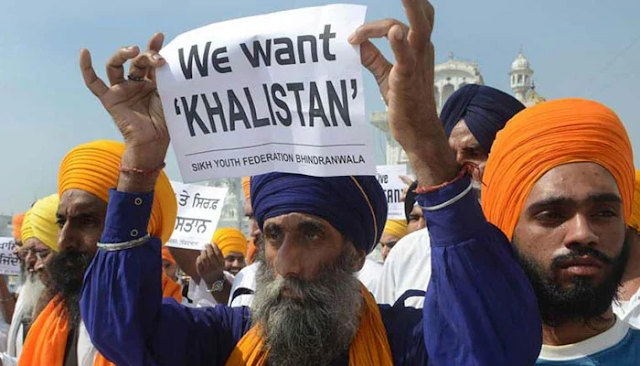India Suspends Visa Services for Canadian Citizens Amid Hardeep Singh Murder Disput
Diplomatic relations between India and Canada have taken a hit in recent times, primarily due to the murder allegations surrounding Hardeep Singh Nijjar. This unfortunate incident has escalated tensions between the two nations, leading to India's decision to suspend visa services for Canadian citizens. In this article, we will delve into the details of the case, its impact on diplomatic ties, and the consequences of India's suspension of visa services for Canadians.
The Hardeep Singh Nijjar Case:
Hardeep Singh Nijjar, a Canadian citizen of Indian origin, has been at the center of a major controversy. Indian authorities have alleged that Nijjar was involved in several high-profile murders and acts of terrorism in India, particularly in the Punjab region. These allegations, if proven true, could have severe implications for both countries.
Canada's Response:
The Canadian government has maintained that Nijjar is entitled to due process and a fair trial, consistent with Canadian values and principles of justice. They have requested clear evidence from the Indian government to support the allegations against Nijjar. Canada's stance underscores the importance of upholding human rights and the rule of law, even in cases with potential diplomatic ramifications.
Escalation of Tensions:
The Nijjar case has significantly escalated tensions between India and Canada. Both nations have called in their respective high commissioners to express their concerns and disagreements regarding the handling of the situation. India's assertion that Nijjar was involved in terrorist activities that targeted Indian nationals has strained diplomatic ties, while Canada's insistence on due process has added to the complexity of the matter.
India's Suspension of Visa Services:
As a response to the growing tension, India has decided to suspend visa services for Canadian citizens. This move has far-reaching implications, as it affects not only tourists and business travelers but also families and individuals seeking to visit their relatives in India. The suspension of visa services is a significant step, reflecting India's frustration with Canada's handling of the Nijjar case.
Impact on People-to-People Relations:
The suspension of visa services has had an immediate and tangible impact on people-to-people relations between India and Canada. Families separated by geographical borders, students pursuing education opportunities, and professionals engaged in business activities are now facing uncertainty and disruption. This situation is particularly distressing for individuals who have long-standing ties to both nations.
Diplomatic Resolution:
While the suspension of visa services is a stark development in this ongoing dispute, it is essential for both nations to prioritize diplomatic dialogue and cooperation. Resolution through diplomatic channels is the most prudent way to address such disputes, ensuring that justice is served while maintaining the amicable relations that both India and Canada have enjoyed for many years.
The Hardeep Singh Nijjar murder dispute has cast a shadow over the otherwise warm and cooperative relations between India and Canada. The allegations against Nijjar and Canada's insistence on due process have led to heightened tensions, resulting in India's suspension of visa services for Canadian citizens. It is now imperative for both nations to engage in meaningful diplomatic dialogue to find a resolution that balances justice with maintaining the strong bonds that have historically existed between these two nations. In the meantime, many individuals and families are left in limbo, awaiting a solution that will allow them to continue their connections across borders.



Comments
Post a Comment